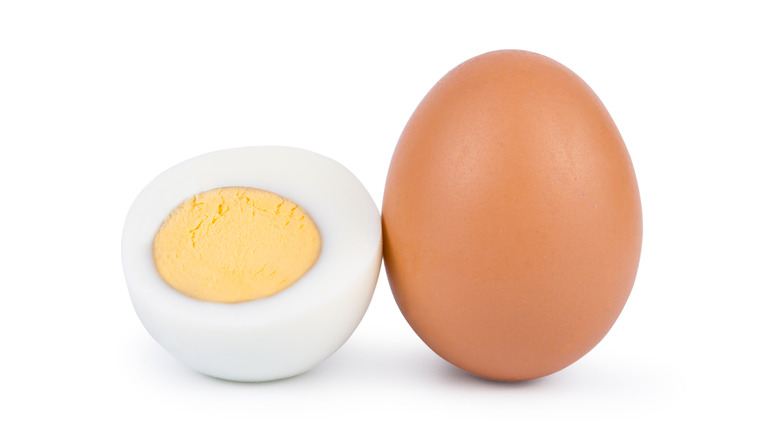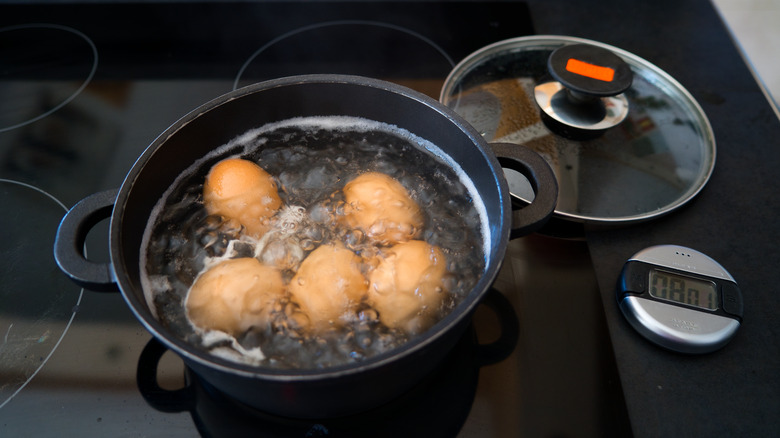Here's The Huge Sin You Are Committing When Making Hard-Boiled Eggs
Making hard-boiled eggs is both art and science. Even the smallest mistake can result in dry, chalky yolks, cracked shells, or weird flavors. An egg boiled for five or six minutes looks completely different from one boiled for 10 minutes. Sure, if you like your eggs runny, there's nothing wrong with cooking them for five minutes or less.
Loaded with protein, hard-boiled eggs make a healthy addition to salads, sandwiches, and homemade snacks. Plus, they're low in calories and carbs. A large egg has only 80 calories, 0.6 grams of carbs, 5.6 grams of fat, and over 6 grams of protein, reports My Food Data. You'll also get about 6% of the daily recommended vitamin D intake and large amounts of vitamin A, vitamin B12, riboflavin, and choline.
Need one more reason to eat eggs? Protein, one of their key nutrients, increases satiety and keeps your metabolism up (via British Journal of Nutrition). On top of that, it promotes fat loss and maintains lean mass. That being said, here's the huge sin you are committing when making hard-boiled eggs.
Putting cold eggs in boiling water is a recipe for disaster
One of the biggest mistakes you could make when cooking hard-boiled eggs is to place them in boiling water, says Taste of Home. This causes them to crack, affecting their shape and texture. The same can happen if the eggs are too cold when you submerge them in water. A rapid boil may cause the eggs to crack, too.
Taste of Home recommends bringing the eggs to room temperature before you boil them. To prevent cracking, place them in a pot of cold water and then simmer for about eight minutes, suggests Chef Chui Lee Luk (via the Sydney Morning Herald). Australian chef Peter Gilmore, on the other hand, told the Sydney Morning Herald that he prefers heating the water to just before boiling point and then adding the eggs.
All in all, there are no set rules on how to make hard-boiled eggs. Ask three chefs about it, and you'll get three different answers. However, most experts agree that it's best to use eggs at room temperature and immerse them in cold or warm water. If they are hard to peel, place them under running cold water for a few seconds. Remember to save the eggshells, as they can be recycled or reused. Chef Peter Doyle recommends immersing the eggs in ice-cold water when you're done cooking. "This should result in a golden yolk with a little moisture in the middle,” he told the Sydney Morning Herald.

